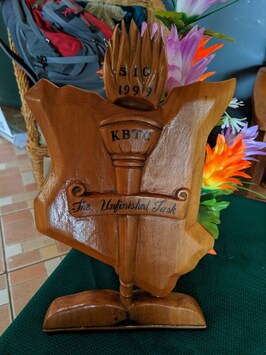 My colleagues and I of The Unfinished Task Network were recently privileged to meet with pastors in East Africa for the purpose of considering the Unfinished Task before us. This was no random gathering of African pastors. Instead, these still identify themselves as members of Class 510, a cohort that started and completed together the Diploma of Theology degree at Kenya Baptist Theological College back in November of 1999. The final course that I taught them in 1998 was an elective entitled “The Unfinished Task,” in which I challenged the students of Class 510 to move from being beneficiaries of mission to serving as agents of mission. David Neely, a fellow instructor at KBTC, and I dreamed of and prayed for students to catch a vision for indigenous church planting among the least reached people groups of East Africa. We considered biblically and strategically what would be required of our students to enter into missionary endeavor themselves, rather than depending on Western missionaries as had been the case for well over one hundred years in Kenya. The challenge was met at first with incredulity—was it even acceptable to the Baptist mission to speak in these terms? One by one, the students recognized the aberrant gap, and embraced the calling themselves to go and send rather than continue waiting and receiving. As the course came to a close, the twenty three students of Class 510 presented me with a wooden carving of the nation of Kenya to which they attached a small notepad containing the name of each student and the unreached people group they were committing to engage with the Gospel. Fast forward twenty years. Under what I understood to be the prompting of God’s Spirit, I was compelled to gather these students again from all across East Africa and ask them to share their story—what God has done in and through them over these many years since we last discussed and agonized over the unreached peoples of East Africa, and the gut wrenching absence of indigenous missionaries among them. I reached out to my former missionary colleague and another close friend, and we began working to bring Class 510 back together. Members of the class accepted our invitation, and sixteen of the original twenty three came together in Tigoni, Kenya, most of whom had enjoyed very little communication among themselves during the previous twenty years. Five members of the original group had gone on to be with the Lord, so the sixteen members of Class 510 that gathered represented 89% of the students still living. What we learned as they shared their story was nothing short of awe inspiring. These twenty-three servants of Christ had engaged 29 language groups with the Gospel—6 of which are considered unreached people groups. They had planted 275 churches, that in turn had planted another 96 churches. They accomplished all this without the aid of Western missionaries and funding, and in the face of enormous challenges, intense loneliness, and heart-rending suffering. They acknowledged their short comings, and admitted the discouragement they had endured along the way. Despite setbacks and occasional losses that would have turned back most Christian leaders, they remain faithful to finishing the task of reaching the least reached around them. At the close of our Class 510 reunion, we challenged and recommissioned them to go out with a renewed vision for indigenous church planting among the least reached peoples of East Africa. Only time and eternity will reveal the full extent of their sacrifice, but based on historical and empirical evidence, we have every reason to believe that theirs will be an exponential impact for the gospel and glory of Christ among the nations. Dane Fowlkes, Ph.D. Co-Founder, The Unfinished Task Network
1 Comment
|
Archives
October 2020
Categories |
 RSS Feed
RSS Feed